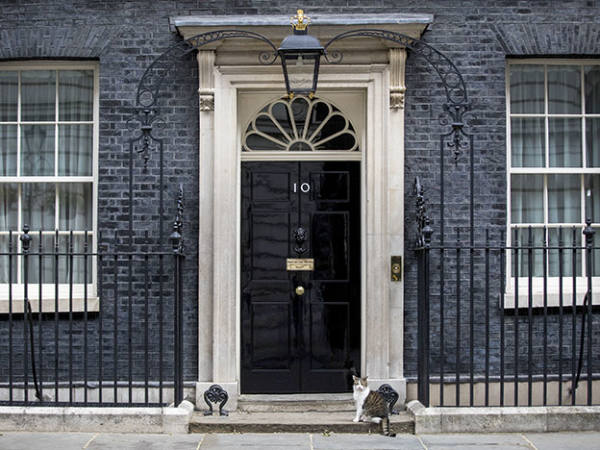- Sector leaseholders “just aren’t well-run”, says RSH
- Tenants that pay more than 70 per cent of Civitas rent roll under scrutiny
A watchdog that raised finance and governance concerns around a string of Civitas Social Housing’s (CSH) tenants says it is yet to see a plan for how the censured housing associations can improve their financial viability, adding a fresh source of doubt to the Reit’s long-term business model.
In September, the Regulator of Social Housing (RSH) launched an investigation into Civitas’ largest tenant, Falcon Housing Association, after identifying matters that may impact its compliance with governance and financial viability standards. As of June, Falcon made up 19.3 per cent of the landlord’s rent roll.
A month before, Civitas’ second-largest tenant, Auckland Home Solutions – which accounts for 16.3 per cent of rents – was accused of serious lapses of governance and failure to “manage their resources effectively to ensure their viability can be maintained”.
“So far, we haven’t seen the housing associations come up with anything,” the RSH’s deputy chief executive Jonathan Walters told the Investors’ Chronicle. “We are also concerned with the assumptions some providers are making around the rents they charge their tenants and we haven’t had very good answers on why they will continue to qualify.”
The RSH has grown increasingly concerned with the financial strength of the fast-growing social care sector in recent years. Of the 1,500 or so housing associations it oversees in England, just 20 have been deemed non-compliant, the vast majority of which are in the social care sub-sector.
Currently, tenants responsible for more than 70 per cent of Civitas’ annual rent roll are under investigation by RSH or have been served with regulatory notices about their compliance with economic, governance or financial viability standards.
Civitas is a major player in the sector and owns £916m-worth of properties which cater to the complex needs of supported-living tenants. These service users are ultimately funded by central government, via local authorities who appoint care providers to meet individuals’ needs. In turn, these care providers work with housing associations and so-called aggregators who source and convert buildings into supported accommodation before selling them on to landlords such as Civitas.
“The crux is some housing associations haven’t understood the leases they’ve entered into, or the costs that come with them,” said Walters. “What we’re left with are leases that are uneconomic for them and providers that are very vulnerable to higher-than-expected void rates, changes to legislation or local authority re-tendering.”
Walters believes the only way to remedy concerns around tenants’ capital strength and liability management is “through a better sharing of risk and reward between freeholder and leaseholder”. This could include “lower lease payments and more provider expertise on the lease size”.
RSH says it has seen instances where large housing associations have turned down long-term leases offered to them by social care landlords after judging them uneconomical.
In a statement, Civitas said: “Large housing associations (HAs) have not turned down leases with Civitas due to them being uneconomical. These lease agreements are not applicable to large HAs owing to the granularity of the assets involved.”
In recent weeks, Civitas has also sought to reassure investors after a bearish report from research group Shadowfall accused directors of failing to disclose a related-party transaction connected to a 2020 acquisition. Shadowfall, which has a short position in around 1 per cent of Civitas stock, has since accused the group of taking a “pass the parcel” approach to lease management.
“As far as we can tell, when some tenants of Civitas are found to be in difficulty, likely arising from the unaffordability of long-term leases, Civitas’ solution appears to us to be to transfer those leases to another tenant,” Shadowfall managing partner Matthew Earl wrote to Civitas chairman Michael Wrobel this month. “This transfer is often accompanied by a lease incentive and an extension.”
The board has not responded directly to that letter, other than to state that the company’s assets continue “to perform in line with expectations” and reiterate plans to pay a 5.55p dividend this financial year. Over the past month, Civitas has also spent £4m buying back its own shares.
For a landlord that collected more than 99 per cent of rents in the 12 months to March, the recent erosion in market sentiment towards Civitas has been dramatic. Despite a small rebound in recent days, the Reit’s shares are off a fifth in the past three months, returning to the discount to book value at which they traded throughout 2019.
That period of bearishness followed the failure of tenant First Priority. Although the financial impact to Civitas was limited to £400,000 in lost income after reassigning leases, the incident illustrated the risk of housing association failure. A subsequent RSH report into First Priority’s collapse highlighted governance and financial viability issues among many providers.
In response to Walters’ comments, Civitas highlighted the critical needs its care-based housing helps to meet. “Without Civitas and other specialist support housing providers many of these people would otherwise reside in institutions or other inappropriate accommodation with poor social outcomes,” it added.
Of that there can be little doubt, but this also explains why the RSH is so concerned about counterparty risk from weak tenant financial controls. Civitas’ tenant base may be diversified, but the proportion now under regulatory scrutiny should worry investors.
“We talk with officials in the department for Levelling Up, Housing and Communities and they’re clearly concerned about what is happening,” Walters told us. For all the demand in this sector, bad news is never far off. Avoid.
Last IC View: Hold, 97p, 21 Sep 2021











